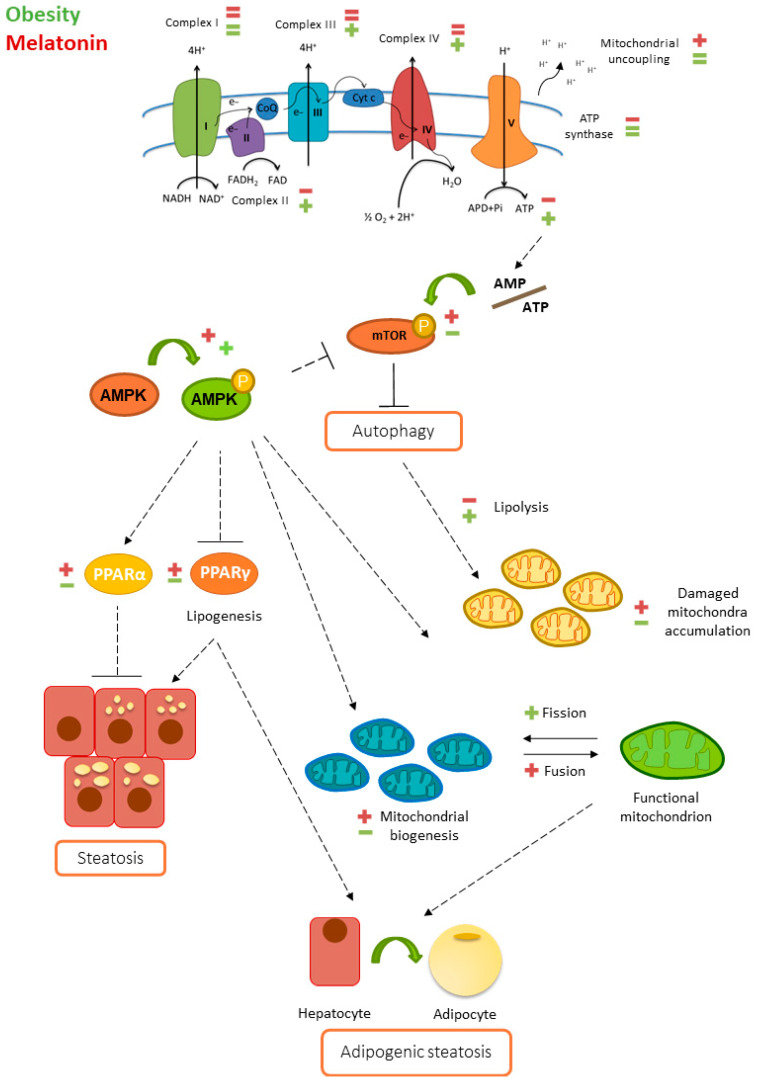Figure 9.
Effect of melatonin on the hepatic mitochondrial adaptations induced by obesity. Obesity (in red) is associated with hepatic mitochondrial dysfunction and lipid accumulation. Thus, obese mice exhibited reduced (minus symbol) levels of some subunits from complex II and complex V, together with decreased ATP production and increased (plus symbol) mitochondrial uncoupling. This mitochondrial energetic status activates the AMPK and adipogenic pathways, contributing to steatosis. Obesity also activates mTOR, suppressing autophagy, which ultimately contributes to the accumulation of damaged mitochondria. The promotion of mitochondrial biogenesis and mitochondrial fusion allows mitochondria to adapt to avoid bioenergetic failure. Melatonin (in green) can partially counteract some of these adaptations by rearranging the electron transport chain machinery, producing relatively high amounts of ATP, inducing mitochondrial turnover mechanisms and attenuating lipogenesis.

